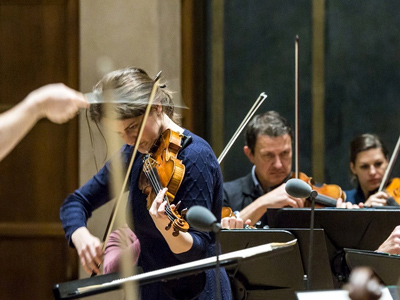By Brian Taylor Goldstein, Esq.
Here we go again…
On March 6, 2017, President Trump issued a new Executive Order regarding US immigration to replace the previous Executive Order of January 27, 2017. The new Order takes effect on March 16, 2017 and expressly revokes the January 27, 2017 Order (which had been subject to a court issued temporary restraining order anyway.) The new Order…
- Bans immigrant and nonimmigrant entries for citizens of six designated countries – Syria, Iran, Libya, Somalia, Sudan, and Yemen – for at least 90 days beginning on March 16, 2017. The new Order no longer includes Iraqi nationals in the 90-day travel ban.
- Exempts certain categories of people, including lawful permanent residents (US “Green Card” holders), current US visa holders, and dual nationals traveling on a passport from a country that is not one of the six designated countries.
- Confirms that no visa issued before March 16, 2017 will be revoked as a result of the Order, and that any individual with a revoked or cancelled visa as a result of the prior, January 27, 2017 Order is entitled to a travel document for travel and entry to the US. After March 16, 2017, nationals from the list of six countries will no longer receive visas, even if they have been approved for visas by USCIS.
- Allows for exceptions and case-by-case waivers.
- Provides that after 90 days, the citizens of these countries can be permanently banned.
- Provides that the Secretary of State, Attorney General or Secretary of the Department of Homeland Security can at any time recommend that additional countries be added to the list or taken off of the list.
- Immediately suspends the Visa Interview Waiver Program (VIWP) and effectively mandates in-person interviews for all nonimmigrant visa applicants.
- Mandates heightened vetting and screening procedures at all levels of the immigration process, particularly immigrants and non-immigrants “who seek to enter the United States on a fraudulent basis.”
While there are other portions of the new Order that impact other areas of immigration, our main focus is on how all of this applies to artists and the Performing Arts. In the case of the new Executive Order, its actually the last two provisions which will have the most widespread impact on foreign artists. Here’s what you need to know:
HEIGHTENED VETTING AND SCREENING PROCEDURES AT ALL LEVELS OF THE IMMIGRATION PROCESS:
It means that when seeking an O or P visa, regardless of the nationality of an artist, artists may encounter additional scrutiny and delays at each stage of the process—from petitioning USCIS for visa approval, to consulates issuing visas, to Immigration Officer’s admitting artists at the border. This applies to artists from any country in the world.
Given that the new Order specifically requires heightened vetting and screening of those “who seek to enter the United States on a fraudulent basis”, there is going to be even more scrutiny and less forgiveness than ever before with regard to artists attempting to enter the US on visitor visas (B-1/B-2) or through the Visa Waiver Program (“ESTA”). We are already receiving reports of artists being held and detained for hours upon entering the US to determine whether or not they are performing. Even artists entering as visitors for the purpose of attending a conference or “performing a showcase” are being pulled aside and, in many cases, being refused entry. Artists entering with B- 1/B-2 visas or through the Visa Waiver Program (ESTA) are being pulled aside the moment they say that they are “entertainers”, “performers”, or “artists.”
When an individual is held and detained, they are subject to interrogation as well as demands to inspect their cell phones, luggage, and personal items. Any refusals can be groups for a refused entry, which will then stay on an artist’s record impeding future visas and travel.
Everyone needs to understand and accept that: Artists cannot perform on visitor visas (B-1/B-2) or through the Visa Waiver Program (“ESTA”) regardless of whether or not they are being paid and regarding of whether or not tickets are sold. Except in the most narrowly defined circumstances, US immigration law has always defined “work” as it pertains to artists, as any kind of performance. Artists denied entry on the basis of fraud, will have a denied entry on their record, impeding future visas and travel.
Some presenters and venues in the US—particularly festivals and academic institutions continue to advise artists that O and P visas are not required if an artist is not being paid and/or if the performance is part of a training program. This is incorrect and always has been.
In addition, while artists with O and P visas, on the average, seem to be experiencing less trouble, even O and P visa holders, as well as green card holders, are being held and detained in instances where an Immigration Officer believes they are citizens of or traveling from ANY country in the world whom they believe could pose a threat to the US.
In short (I know, too late), an Immigration Officer has the unfettered authority and discretion to deny entry to any artist from any nationality for any reason. To what extent this authority will be exercised remains to be seen.
THE SUSPENSION OF THE VISA INTERVIEW WAIVER PROGRAM (VIWP)
While it has always been subject to the discretion of each consulate, the VIWP allowed consular officers to waive the interview requirement for applicants seeking to renew nonimmigrant O and P visas within 12 months of expiration of the initial visa in the same classification. The VIWP has been used to waive the interview requirement only for travelers who have already been vetted and determined to be a low security risk and who have a demonstrated track record of stable employment and stable travel.
By suspending the program, all artists will be required to have a personal interview in order to receive a new visa regardless of when their last O or P visa was issued or whether or not they were previously allowed to receive a visa under the VIWP.
Until additional consular staff is hired, Order will place enormous burdens on U.S. consulates and embassies – particularly high-volume consulates – by increasing already extended interview wait times and processing times, wasting limited resources, and potentially decreasing the quality of consular interviews.
HOW DOES THE NEW ORDER IMPACT ARTISTS FROM THE 6 BANNED COUNTRIES (IRAN, LIBYA, SOMALIA, SUDAN, SYRIA, AND YEMEN?
- If the artist is a citizen of one of those countries, but already has a US visa or Green Card, then “officially” the ban does not apply to them. However, they should still expect “heightened vetting and screening procedures.” Also, once their visas expire, they will need to leave the US and will not be eligible for new ones.
- If an artist from one of these countries has not yet been issued a visa by March 16, 2017, they are not going to get one. This includes students.
- If an artist who is citizen of one of these countries is also a citizen of another country not on the list (for example, a citizen of both Iran and Canada), they WILL be allowed to receive visas and travel to the US PROVIDED the visa is stamped into the passport from the non-banned country and they only travel on the passport from the non-banned country. However, they should still expect “heightened vetting and screening procedures.”
- The Order does not apply to artists who may have been born in one of the banned countries, but who are no longer citizens. However, they should still expect “heightened vetting and screening procedures.”
- The Order does not apply to artists who may have been merely visited or performed in one of the banned countries. However, they should still expect “heightened vetting and screening procedures.”
WHAT DO WE RECOMMEND?
- All artists, regardless of nationality, she travel to the US with copies of their I-797 visa approval notices and maintain such copies, along with copies of their visas, on their person at all times while in the US. In addition to US Immigration Customs and Enforcement (ICE), state and local police can also demand proof of valid immigration status at any time while an artist is in the US.
- Artists from all countries should not attempt to enter the US on visitor visas (B-1/B-2) or through the Visa Waiver Program (“ESTA”) except in the most narrow of circumstances. For example, performing at a booking conference (Arts Midwest, PAE, APAP, etc.) where only registered attendees are permitted to attend or performing at a competition or non-public audition are still permitted in visitor status. However, whether or not an Immigration Officer will continue to understand and accept these exceptions remains to be seen. In such instances, make sure such an artist is properly advised ahead of time and travels with extensive supporting evidence.
- Plan well in advance when submitted visa petitions to USCIS and allow for extra time for US consulates to issue visas.
- Review an artist’s prior travel to the US to make sure they have not engaged in any un-authorized performances and, if so, plan accordingly.
- Artists should bring snacks when traveling into the US in case they are held or detained as there is no food available. We recommend beef jerky. But not hummus.
- Plan and prepare, not panic.
As our office continues to address issues and implications on the front lines, we are relying upon the American Immigration Lawyers Association (AILA), The League of American Orchestras, the US Performing Arts Task Force, and other vital organizations who continue to monitor and report on the situation at all levels. AILA does not believe the new Order will withstand judicial scrutiny since the targeted countries are majority Muslim and the Order fails to provide evidence that nationals of the six countries pose a threat to national security.
As the rules can change at any time, it is critical that you consistently check with reliable sources (ie: not chat rooms or random google searches) for updates and developments before making any travel decisions, applying for visas, or booking foreign artists. We recommend:
1) www.artistsfromabroad.org
2) The USCIS website: www.uscis.gov
3) The US Department of State website: www.travel.state.gov
4) The US Customs and Border Patrol website: www.cbp.gov
5) The American Immigration Lawyers Association (www.aila.org)
___________________________________________________________________
For additional information and resources on this and other legal, project management, and business issues for the performing arts, visit ggartslaw.com
To ask your own question, write to:
lawanddisorder@musicalamerica.com
All questions on any topic related to legal, management, and business issues will be welcome. However, please post only general questions or hypotheticals. Questions will be answered ONLY in future blogs. GG Arts Law reserves the right to alter, edit or, amend questions to focus on specific issues or to avoid names, circumstances, or any information that could be used to identify or embarrass a specific individual or organization. All questions will be posted anonymously and/or posthumously.
__________________________________________________________________
THE OFFICIAL DISCLAIMER:
THIS IS NOT LEGAL ADVICE!
The purpose of this blog is to provide general advice and guidance, not legal advice. Please consult with an attorney familiar with your specific circumstances, facts, challenges, medications, psychiatric disorders, past-lives, karmic debt, and anything else that may impact your situation before drawing any conclusions, deciding upon a course of action, sending a nasty email, filing a lawsuit, or doing anything rash!







Staatsoper Favors Local Fans
February 22nd, 2017By ANDREW POWELL
Published: February 22, 2017
MUNICH — Bavarian State Opera had a delicate problem. It was selling too many tickets online, more with each passing season. Its system, powered by CTS Eventim, was so robust and so fast that little was left to sell via phone or in person minutes after the 10 a.m. start time on heavy-demand days, causing embarrassment and a sense of unfairness inside its bricks-and-mortar box office, the Tageskasse, off chic Maximilianstraße.
No longer. This season, Germany’s busiest, richest, starriest and arguably best-managed opera company has a cure, one to make any Luddite proud. It does not smash the machines exactly. It instead decries the good system behind them and handicaps the online buyers who use them — seriously, unpredictably, before breakfast. BStO seats below €100 when Anja Harteros or Jonas Kaufmann sing are now all but inaccessible online.
“CTS Eventim’s system sometimes was not up for the amount of people trying to get tickets,” the company claimed in a late-January statement, and buying was “a bit of a lottery.” The system “would throw you out of the purchase process before ending it, which was acceptable neither for the Staatsoper nor for our audience.” Imagine. Computers that sell 100 million tickets annually for 180,000 events get the jitters handling Anja or Jonas.
These flaws and a desire “to make the system more stable,” BStO’s story goes, led to its decision last fall to handicap online buying on certain mornings in 2016–17. How? A delay is “activated” when events in heavy demand go on sale, postponing the moment the buyer “gets access” to the online box office, called in German the Webshop (or occasionally Onlineshop). Phone and in-person selling, meanwhile, proceed as usual from the 10 a.m. start time.
Understandably the opera company has never announced the handicapping, and sources familiar with the Tageskasse scene say CTS Eventim’s system had nothing to do with the decision. The real motive, according to these sources, is to try to replicate online the speed of the physical line (queue) at the Tageskasse following years of grumbling from people who buy that way, and from staff too. A tug-of-war between Internet users and the bricks-and-mortar crowd has accordingly shifted in favor of the latter.
Out-of-town buyers are the worst hit, having fewer routes to tickets. Bavarians resident outside their capital city — it is the “state” opera after all — and fans of the renowned company as far away as East Asia and North America greatly rely on the Webshop.
The disadvantage is not new at BStO. Indeed the artificial online delays effectively bring to the main season the same narrow price availability for out-of-towners they have long experienced with BStO’s 142-year-old summer Munich Opera Festival. Tickets for the festival are first sold in snowy January in person only, and the lower four of eight price categories — roughly, seats below €100 for major performances — sell out this way when the biggest stars are scheduled, months before online ticketing starts.
Countless customers were surprised by the handicap on Jan. 12, 14, 18, 22, 30 and Feb. 2 while trying to buy tickets for Philipp Stölzl’s new production of Andrea Chénier, due March 12 and starring — gosh — both Harteros and Kaufmann. All performances were affected on those selling mornings, corresponding to BStO’s two-month lead time.
Surprised, and confused actually. The handicap throws up two screens in place of the Webshop. First, a countdown page, labeled with the quaint metaphor “waiting room” to dupe people into thinking the system is too burdened to process their order. This assigns a wait number, which ironically turns out to be far from “stable.” Then comes a standby page, for buyers whose number has dropped to 0 (zero) before the Webshop opens, i.e. before 10 a.m. — a strange situation, one might think, but the only one with potential to yield broad ticket choice.
Not-so-hypothetical scenarios:
Unaware of the handicap, she logs on at 9:55 a.m. She faces not her expected Webshop but the countdown page. (She would be there regardless of what event and date she is pursuing. The whole operation is impacted that morning because one heavy-demand performance is going on sale.)
She has of course no idea when the handicap was activated. (The answer could be 6 a.m., about when a physical line might start outside the Tageskasse.) But she is less troubled than buyers who may have purposefully stopped work in Tokyo or climbed out of bed in Boston.
She sees 29 lines of precise instructions auf Deutsch, unless she has opted for English screens, in which case she sees a remarkably compressed version of just five lines. (The complete English is here.) Key instruction: “Do not refresh.” Below, she reads her wait number: a high one, 400. Her chances are nil, but she doesn’t know this. She ties herself up for an hour before learning.
Logs on at 5:55 a.m. She is too early and goes straight into the normally functioning Webshop. She assumes she can just wait there until 10 a.m. But no. She must refresh the screen every twelve minutes or be disabled for inactivity. No instructions say this because the system was in normal mode when she entered. (To see them, she would have had to arrive via the countdown page and witness her wait number drop to 0 before 10 a.m.)
When she casually returns to the screen at 9:30 a.m., she discovers the Webshop inactive for her. She reloads. Now she is on the countdown page with number 200. Again no chance.
Fares better. He logs on at 6:15 a.m., apparently just after the handicap was activated. He lands on the countdown page with number 10. Like A, he is told not to refresh. He obeys. Later, but before 10 a.m., his number drops to 9, then 7. He wonders how this could be. No orders are being processed. (Possible answer: people on the standby page are failing to refresh and losing their place.)
But for him to succeed, his number must drop to 0 by 10 a.m. Otherwise, whether he’s at 400 or 4, he will be stuck on the countdown page during the crucial initial selling minutes.
Luckily he does drop to 0. He is moved to the standby page, a promising but precarious place. There he sees the instruction to refresh that N missed. He must do this every twelve minutes until 10 a.m. If he has arrived on the standby page early, say at 7:15 a.m., he will be doing a lot of refreshing. Should he fail — just once — he will find himself back on the countdown page holding a high number. (Anja and Jonas never wanted it that way.)
When the hour rolls around and the handicap ends, he must be ready, as in the past, to point and click with decisiveness and accuracy. His seats are secure only when they appear in his Einkaufswagen, the shopping cart.
A, N, and R may be imagined. The following numbers are real, recorded during the Jan. 18 handicap on Andrea Chénier ticketing in checks using two browsers and two connections:
Logging on at 10:24 a.m., a wait number of 688 with 170 seats left to sell. Three minutes later, wait number 346 with 130 seat left. At 10:43 a.m., number 179 with 38 seats. At 10:54 a.m., number 40 with 19 seats. After another five minutes, access to the Webshop with 4 seats shown as available. By 11:04 a.m., 2 seats left but neither one of them moveable into the shopping cart. At 11:07 a.m., sold out, Ausverkauft. Despite this, a new buyer could log on at 11:10 a.m. and receive wait number 382, which would drop to 0 six minutes later and lead to an empty Webshop.
Bavarian State Opera should end this nonsense. The company is damaging its reputation and working against its own carefully evolved ticket structure and sales procedures, designed to draw people of all income levels from a broad geography.
Those procedures sell tickets three ways: subscription; single-event by written order; and single-event by immediate fulfillment. The latter two are processed on a staggered basis according to performance date. Written orders (traditional mail, fax, email) are worked three months out. Immediate-fulfillment sales (online, phone, physical presence in the Tageskasse) begin two months out.
Each single-event method draws on fixed set-asides, or Kontingente, of seats in the 2,100-seat National Theater. These are broken down across BStO’s eight price categories and to within specific seating blocks, to as few as two seats, allowing near-total price and seat choice for each method. Quite sophisticated. And really quite fair, at least in the case of written orders. Even without handicapping, though, buyers outside Munich have less access to the immediate-fulfillment set-asides: getting to the Tageskasse may not be possible, and phoning is hard when there is heavy demand. Naturally they depend on the Webshop — and their hot connections, firm wrists, pinched fingertips and nanosecond nerves.
CTS Eventim, far from warranting criticism, could be held up as a most capable and user-friendly ticketer. Certainly its system offers an easier buyer interface, more precise seat sectioning, and lower fees, than that of the larcenous near-monopoly Stateside.
Instead of blaming its vendor, the opera company needs to go back to the future and solve its delicate Tageskasse problem with rigor and honesty. This means two things: adjustments to the Kontingente to reasonably protect in-person buyers; and an announcement of the change. Any tactic resulting in Internet screens that mislead buyers and waste their time, or too weird to spell out in a news release, is a bad one.
Photo © Wilfried Hösl
Related posts:
Staatsoper Imposes Queue-it
Harteros Warms to Tosca
Antonini Works Alcina’s Magic
Portraits For a Theater
Staatsoper Objects to Report
Tags: Bavarian State Opera, Bayerische Staatsoper, Commentary, CTS Eventim, München, Münchner Opernfestspiele, Munich, Munich Opera Festival, National Theater, Nationaltheater, News
Posted in Munich Times | Comments Closed
Blogs
Archives
Tags
Meta
Musical America Blogs is proudly powered by WordPress
Entries (RSS) and Comments (RSS).